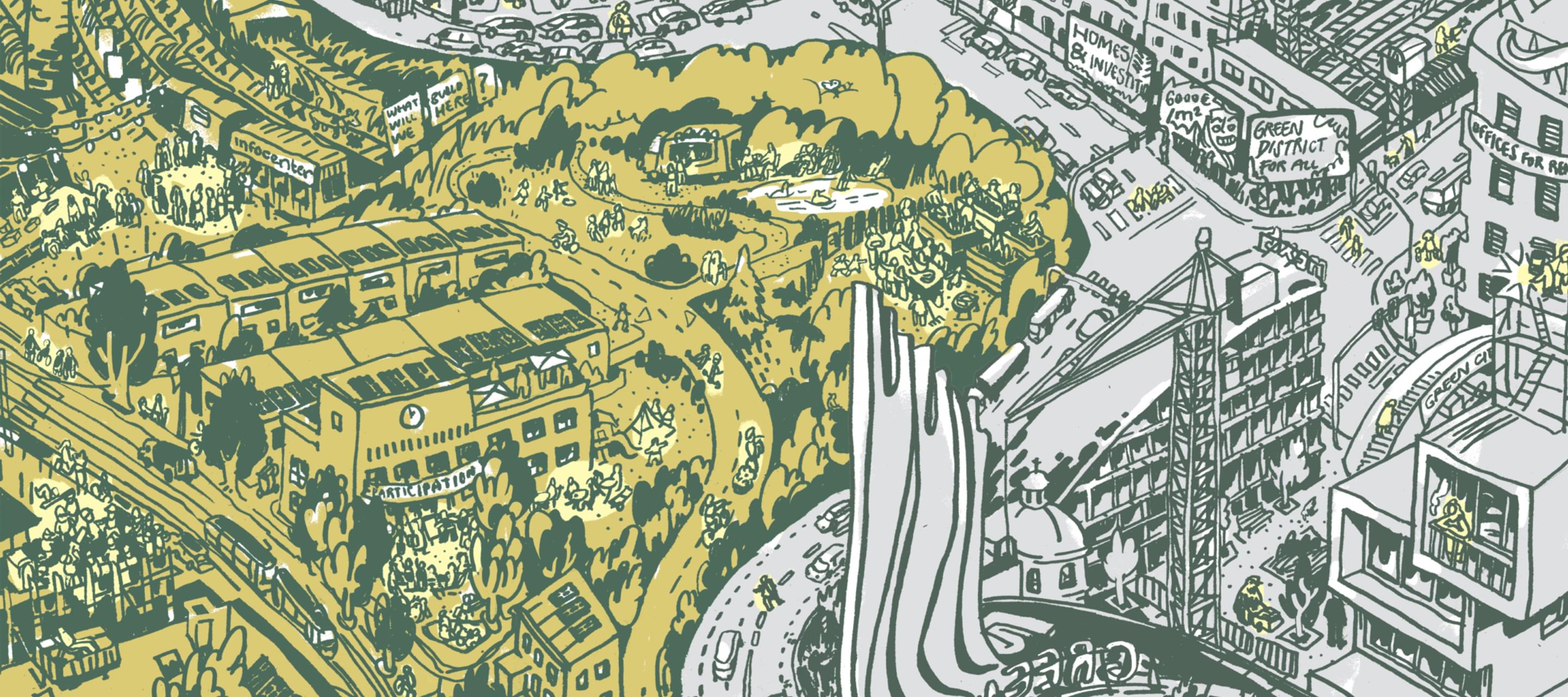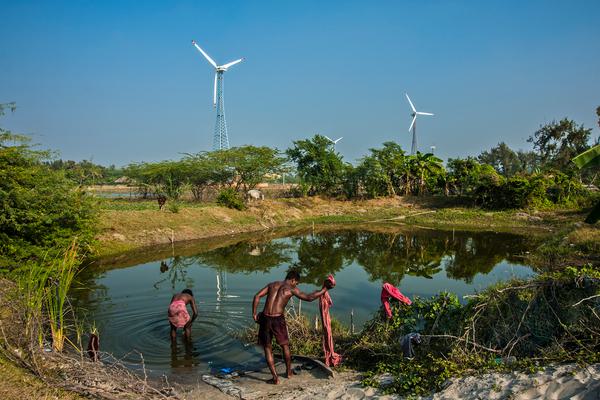Advancing Just Transitions in the Built Environment - Exploring human rights in the green transition
6 June 2024

Summary
- Advancing Just Transitions in the Built Environment is a two-year research project that investigates the human rights impacts of built environment decarbonisation policies, such as renovation programmes, retrofit subsidies, or new energy-efficient buildings. It focuses on the right to housing, construction worker rights, meaningful participation, and spatial justice. Visit the report website: justtransitionsbuiltenvironment.ihrb.org
- The research uncovers the dual global challenge of tackling climate change and inequality across eight cities, each with its own unique national, political, economic, and social context: Lagos (Nigeria), Prague (Czechia), Lisbon (Portugal), Melbourne (Australia), Copenhagen (Denmark), Jakarta (Indonesia), Athens (Greece), and Valparaíso (Chile).
- The research uncovered inspiring examples of governments, businesses, and other actors making homes greener and more affordable or working with marginalised communities to shape climate policies. However, it also uncovered worrying trends that must be addressed, such as renovations leading to evictions (‘renovictions’) and green investment displacing communities (green gentrification).
- The scale of the challenge requires systemic socio-economic transformations. To identify these, the project brought together representatives from governments, businesses, academia, NGOs, trade unions, tenants and other civil society organisations in each city to develop visions for a just transition.
- The report provides 44 recommendations for businesses and policy-makers at national and regional levels to help grasp the enormous opportunity for social and economic innovation through climate action.
Background
Buildings and construction contribute 37% of global energy-related carbon emissions, and cities are often where people experience the greatest socio-economic inequalities and the most severe impacts of climate change. These are global issues: complex, systemic, and entangled, and both must be addressed.
Ever-more frequent extreme weather events are disproportionately affecting vulnerable families in inadequate housing, and marginalised communities are losing their jobs when finite resources dry up. This fuels global instability and polarisation, with negative consequences for governments, businesses, people, and the planet.
Around the world, the past ten years have seen an increase in green policies and funding across all sectors. Global investment in the energy efficiency of buildings alone has reached US $285 billion in 2022, but climate action, like any other intervention, is not neutral.
Efforts to address the climate crisis affect people differently depending on existing power structures, often rooted in historical, structural inequality.
Recommendations
The report outlines 44 recommendations for governments, businesses and investors to apply human rights frameworks to green initiatives so that solutions to social problems are baked into climate action. These include:
- Context-specific investments which recognise the existing building stock, local needs, population projections and socio-demographic make-up;
- Expanded participation of affected communities, including the meaningful engagement of workers in the development of just transition plans; and
- Government and business collaborations to develop a mix of regulations and incentives that unlock the potential of private capital in a socially responsible way
City findings
Across the four European cities, communities that are being left behind are pushing back against green initiatives, including in Athens, where these are nascent. As a result, some policymakers are backtracking on their climate commitments, with disastrous consequences for the planet and for those same communities who are often at the frontlines of the climate crisis.
In Valparaiso, Jakarta, Athens, and Lagos, built environment decarbonisation policies are only beginning to translate into practice. Here, businesses and government leaders have a unique opportunity to learn from the experiences (and from the mistakes) of other cities and prioritise human rights principles when developing climate initiatives. An inclusive, participatory, and fair process helps legitimise shared goals, broaden support, and ultimately accelerate the transition.
Report authors
The primary author of this report is Alejandra Rivera, IHRB Built Environment Global Programme Manager, with important contributions from Giulio Ferrini, IHRB Head of Built Environment and Marta Ribera Carbó, IHRB Europe Programme Manager.
Local research teams who contributed to this project in independent consulting capacities are:
- Athens: Liam O’Farrell, Dr Vicky Kaisidou and Dimitrios Tsomokos
- Copenhagen: Line Knudsen and Christine Lunde Rasmussen, Ramboll Management Consulting
- Jakarta: Dayinta Pinasthika, Citieslab (part of Nusantara Urban Advisory)
- Lagos: Oluwafemi Joshua Ojo, Durham University
- Lisbon: Diana Soeiro
- Melbourne: Joanna Tidy, Lucy Lyon, Natalie Galea, Judy Bush, and Dan Hill, University of Melbourne, Faculty of Architecture, Building and Planning
- Prague: Michaela Pixová, BOKU University of Life Sciences and Natural Resources, Institute of Development Research
- Valparaiso: Sebastian Smart, Anglia Ruskin University, and Rodrigo Caimanque and Belen Segura, Universidad de Chile



